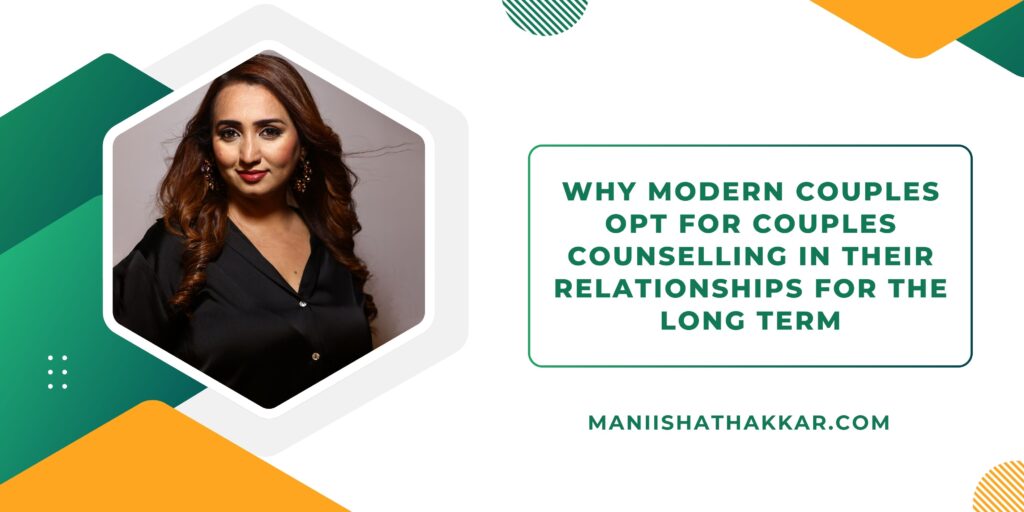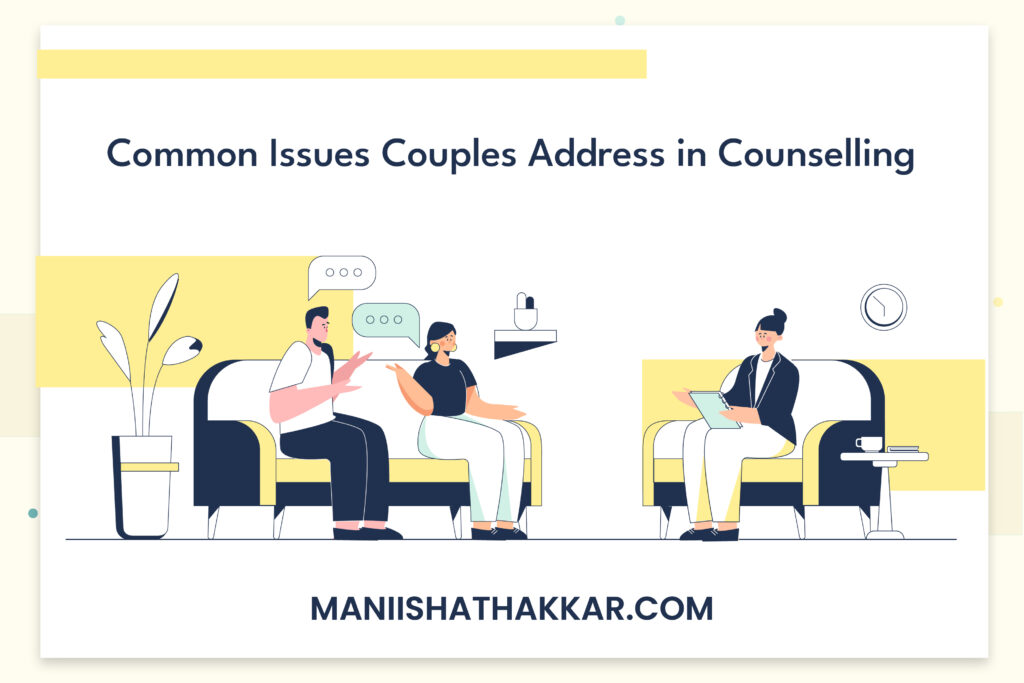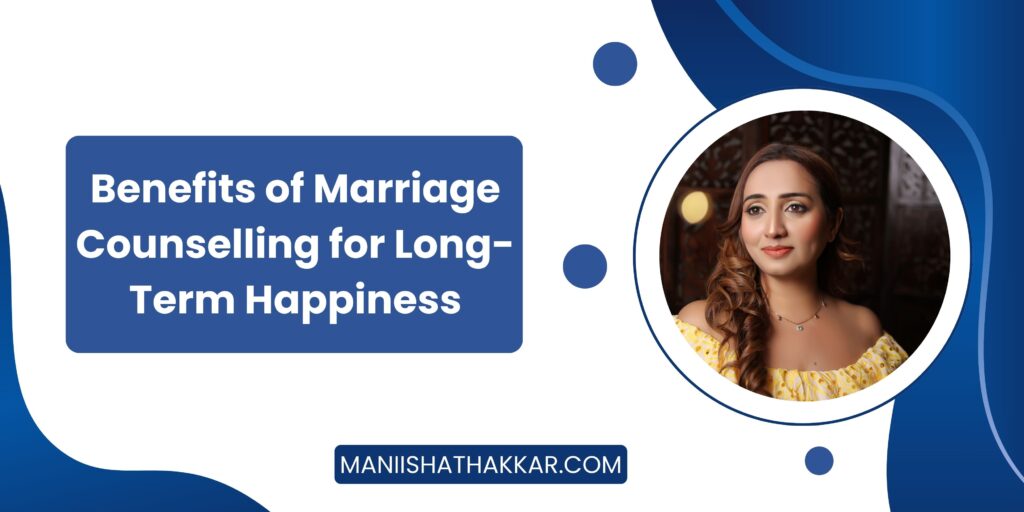
The modern couple comes to terms that relationship wellness deserves as much serious attention as physical or mental health. Alongside fast-paced lifestyles and changing expectations, added stress has led to an inclination in most people toward counseling. Counseling is no longer perceived as a last resort but rather as a preemptive approach to attachment enhancement. Emotional balance, mental clarity, and effective communication are the ultimate ingredients to happy-ever-after. Marriage counseling enables partners to navigate problems, communicate their feelings, and form connections at a deeper level. Consequently, more and more couples are seeking such counsel early enough for preparing stable, fulfilling, and harmonious relationships.
Changing Dynamics in Modern Relationships
1 More Stress and Speedy Lifestyles
Modern relationships are greatly influenced by the speed at which everything around them is happening. Long work hours, all the increased pressure to perform at work, and far greater financial obligations leave little time and energy for couples to give to each other. Even the digital distractions like social media, smartphones, and constant online living further take away emotional presence. The fact that people rush all the time creates gaps in communication, misunderstandings, and emotional detachment. Most couples, therefore, feel overwhelmed and struggle to balance personal responsibility with the responsibilities of others. Through marriage counseling, couples can slow down and understand each other’s needs while forming healthier routines to nurture emotional bonding.
2. Expect Much from Partners
Today’s relationship was changed. A partnership today asks for something more than stability or companionship. The arrangement is expected by partners to provide emotional support, empathy, joint delegation of responsibilities, and depth of connection. Partnered is someone who listens, recognizes independence, and helps manage life better. Higher expectations lead to the idea that, even in small matters, emotional needs are unmet and problems can become major. When those realities become confused with another, then conflict ensues, particularly when the two partners are stressed or busy. In counseling, couples will mention the expectations in realistic terms, work at enhancing the understanding of one another, and balance the relationship such that each member feels valued and appreciated.
3 Emotional Compatibility Shift
Unlike previous generations that emphasize simply social or economical compatibility, contemporary society takes emotional and mental affinity into consideration. They understand that future happiness is from the roots of trust, mutual values, openness in the communication door, and respect. Today, couples seek their partner in the comprehension of their emotions, supporting their personal growth, as well as those contributing to their psychological well-being. It would therefore be from this change in perception that emotional compatibility becomes one of the strongest foundations for lasting relationships. In marriage counseling, partners would have to discover their emotional patterns, attachment styles, and communication habits to initiate a deeper understanding and build a relationship that feels safe, supportive, and satisfying.
Common Issues Couples Address in Counselling

- Trust Challenges & Infidelity
Trust is another strong pillar of any relationship, and when it shatters, even the smallest of misunderstandings might create the emotional distance. Infidelity, whether physical or emotional, creates real wounds regarding the partner’s security and self-worth. Past betrayals, insecurity, and lack of transparency always create doubts and suspicions. In counselling, couples learn to rebuild trust through the process of honest conversations, holding one another accountable, and creating boundaries that are clearly defined. The therapists help the partners understand the root causes of mistrust and work toward healing, forgiveness, and reestablishment against acceptance.
- Routine Arguments
Whenever the conflicts keep repeating without any resolution, they become constant arguments draining the emotional battery. Small issues are escalated because, by then, one of the partners feels unheard, misunderstood, or invalidated. This way, over the period, the resentment, frustration, and stress set in. The field of counselling identifies the patterns of argument in couples, helps them understand triggers, and teaches them to express emotions constructively. They are taught communication methods such as patience, active listening, and problem-solving to help mitigate arguments and enhance peace in their relationship.
- Gaps in Communication
Bad communication is one of the most common reasons why couples enter therapy. As distance grows, partners may stop sharing feelings, choosing instead to avoid conversations they see as difficult or to make assumptions. Communication gaps may also arise from busy schedules, differences in personalities, or fear of conflict. Counselling teaches the partners how to express themselves with clarity and respect. They also learn how to listen without judgment and respond with empathy. This strengthens understanding, reduces misunderstanding, and enhances emotional bonding.
- Compatibility Crises
Every couple experiences differences in personality, lifestyle, habits, or values. Yet when these differences seem incompatible, they become problems of compatibility. One partner may be more emotional while the other is a realist; one may enjoy socializing while the other prefers solitude. Left unmoderated, these differences may create tension and disappointment. Counselling leads couples to accept each other’s individuality and adjust their expectations and find the middle way. The idea is not to make partners the same but to foster acceptance, balance, and teamwork.
- Financial Disputes
Money becomes a matter of contention in many intimate relationships. Differences in spending habits, plans for saving revenue, setting financial goals, or defining responsibility can be grounds for frequent arguments. One partner sometimes feels pressured whilst the other feels restricted. Financial pressures arising from change of jobs, loans, or expenses become the last straw in such a relationship. The counselling shall provide that open environment to have a discussion around their finances and set shared goals. They should treat finances as a team whereby complete transparency is exercised, which will reduce the strain of financial conflict.
- Intimacy Famine
Emotional or physical intimacy can wane under stress, lifestyle changes, health issues, or sustained conflicts. When intimacy ebbs, one or both partners may start feeling lonely, rejected, or disconnected. This causes frustration and strains the relationship. Therapists would assist couples in exploring the emotional and practical reasons behind intimacy issues, making them forge their way toward a return to intimacy. They aid the couples in open communication, showing patience, and engaging in activities that encourage warmth and attachment, allowing them to feel safe and cherish the relationship.
- Family Interference & Cultural Differences
In many relationships, these external pressures originating from families or cultural expectations constituted a real challenge. External instability may be acquired from in-laws, traditional beliefs, or social media, which becomes a source of pressure between partners. Differences in upbringing, religion, or lifestyle habits may also provide a ground for differences. In counselling, partners learn how to establish healthy boundaries and cultivate respect and solidarity with external challenges. Furthermore, it will equip partners to work as a united front while holding family affiliations and cultural identities in high regard.
Benefits of Marriage Counselling for Long-Term Happiness

1. Healthy Relationship Habits
Through marriage counselling, couples are able to cultivate healthy habits needed to sustain a relationship over the years. These are traits such as empathy, active listening, and cooperation to foster greater understanding and assist partners in negotiating through life’s challenges. Counsellors instruct couples to remain calm in disagreement situations, articulate their feelings, and listen without interrupting. Such habits bridge the gap between partners due to miscommunication and enhance emotional connectivity; as couples set aside time and practice these behaviours, they slowly build a positive working environment where both feel appreciated and respected.
2. Encourages Mutual Respect & Understanding
The uniqueness of every partner is emotionally needy, and marriage counselling enables couples to figure out and appreciate the differences. Partners have guided discussions about why each feels or reacts the way they do. It becomes an understanding that is less judgmental and respects their feelings and perspectives. When partners feel understood, they develop confidence in sharing with each other. Negative assumptions will also be fostered from counselling; compassion and clarity will take their place. It is this mutual respect that builds the peaceful and balanced contract.
3. Promoting Long-Term Stability
Conflict is the number-one cause of agitation in a relationship, and repeated occurrences of these conflicts or failure to resolve them would seal the fate of the relationship. During counselling, problems will be specifically discussed, allowing the couple to sort their real-life issues from the trivial ones raised during arguments. By learning conflict-resolution skills, partners will sidestep emotional triggers and productive communication. Reduced fighting helps both partners feel safe from emotional attacks, thus creating a climate conducive to stability. Together, such stability will provide a firm ground of counselling support for respectfully facing challenges before they become destructive, moving toward a healthy version of partnership.
4. Increased Satisfaction & Better Intimacy
Emotional bonding and physical intimacy create a comfort zone in which partners feel safe, appreciated, and respected. Of late, growth in counselling have helped couples touch other barriers like emotional strain, past hurts, stress, or even misunderstanding that affects intimacy. Because of decreasing conflict and increasing connection, partners feel safe to express affection and vulnerability in front of each other. And thus, they form a deeper bond, increased satisfaction, and a natural flow in a physical relationship. Intimacy repairs trust; it repairs joy; and it repairs the quality of the relationship.
5. Helps Create a Shared Vision for the Future
A strong marriage is built on shared goals and mutual direction. Counselling helps couples clarify their future plans—whether related to finances, parenting, career choices, lifestyle preferences, or long-term dreams. With guided discussions, partners learn to align their expectations and make decisions as a team. This shared vision reduces confusion, prevents future conflict, and strengthens unity. When both partners work toward common goals, the relationship becomes more purposeful, stable, and fulfilling.
Conclusions
Increasingly modern couples understand that a healthy relationship requires everyday effort, communication, and emotional awareness. Marriage counselling affords an arena where partners can safely learn to understand each other better, resolve conflicts, and foster their bond. Couples are now opting to seek counseling earlier to build trust, stability, and long-term happiness rather than allowing issues to blow up. Under the necessary guidance, partners learn ways to relate, communicate, and grow together in a healthier manner. In the end, counseling becomes one of the most powerful tools in building a relationship that is fulfilling and balanced while focusing on the future-being a relationship where love grows intentionally and consciously.
